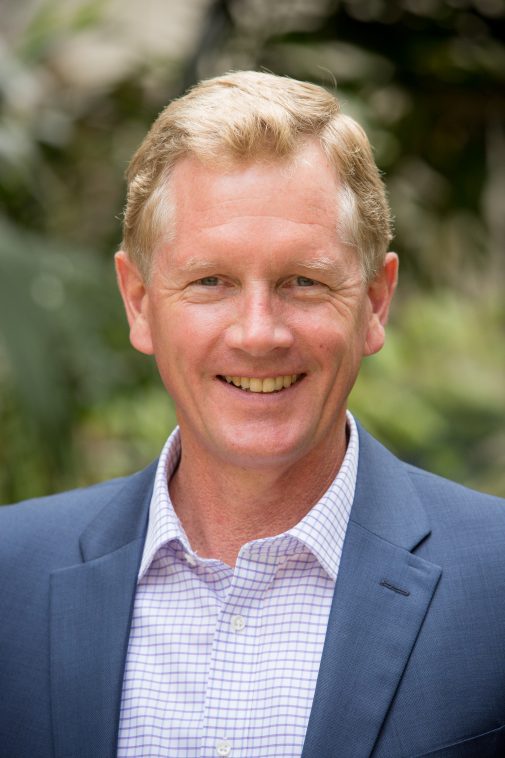Bradford Joins Career Development Office
By
Westmont

Paul Bradford, who directs the Career Development and Calling office, sees his work like that of his old Craftsman toolbox. He says there are some tools in the box that he hasn’t used in years and others he uses with great regularity. Some tools are designed for one specific task, while others can be used in a broad array of circumstances.
“Our team’s vision is to help students discover, add to, and then act upon the tools God has given them — tools that will serve them personally and professionally during the course of a lifetime,” Bradford says.
Bradford, who earned a bachelor’s degree in economics and business from Westmont and an MBA from Pepperdine University, has a diverse career that spans many areas of business, including technology, real estate and non-profits.
He graduated in 1984 and recalls the day after he completed his first year at Westmont when his mom asked him what he learned.
“To which I answered, ‘I learned how much I don’t know,’” he says. “She was thrilled at my answer because it spoke to one of the underlying foundations of Westmont: rigorous academics shaped by a caring faculty who expanded my horizons to the point where I realized there was so much more to learn.
“Academically, Westmont gave me a framework that encouraged a breadth of learning and to pursuing it with confidence. This place also cultivated friendships that have stood the test of time, and we have deeply influenced each other’s lives and the lives of our children.”
Bradford hopes to inspire the incoming senior class to think deeply about the road ahead, encourage them to articulate their strengths and interests, hone their story, and equip them to do the work of discovering what’s next.
“The same basic vision is true for all students, yet the reality of an approaching graduation creates a healthy sense of urgency for seniors and our team,” he says.
“Beyond strengths, interests, and the basics of career development, we work in concert with the faculty and our student life colleagues to help students frame the road ahead with the values central to our shared faith.”
His long-term goal involves building a four-year experience that attracts and engages students and becomes an integral part of their time at Westmont. “Using online assessment tools, one-on-one career counseling, resume and interview assistance, and internship and employment guidance, students will leave Westmont with the tools needed to have a wider impact in their places of employment and the world around them,” he says.
Bradford admits the largest challenge may be to garner the attention of students, many of whom are already overcommitted.
“Four years seems like an eternity to most incoming students,” he says, “so it’s understandable that thinking about a career is simply not on their radar screen. We need to keep this in mind as we build out the platform to incrementally engage students.
“Social media is also a challenge because of the false expectations it can set in students’ minds. Nowhere on Instagram, Snapchat or Facebook do people post about their professional setbacks. Consequently students receive a constant barrage of success and happiness, creating a false narrative about what they can expect from the working world. Our challenge is to push and support them to discover what they want, develop the grit to go get it, and yet be realistic about setbacks being a part of life and work.”
He also teaches as an adjunct professor in the Westmont Department of Economics and Business, and wants his students to conduct an on-campus research project on these two topics.
“I want to learn the language students use to describe how they think and feel about life after Westmont and then incorporate the findings into our program,” he says.
Filed under
Academics, Alumni, Campus News, Faculty and Staff, Press Releases